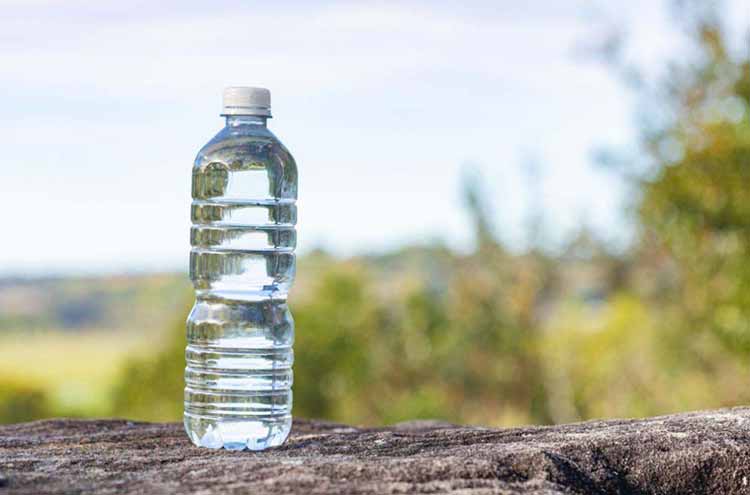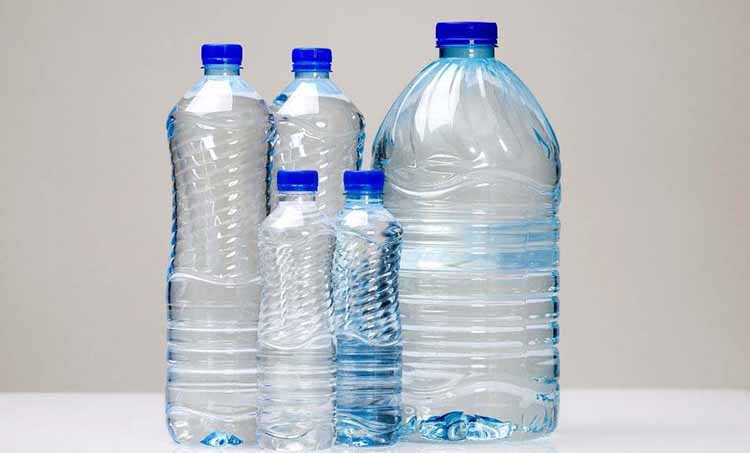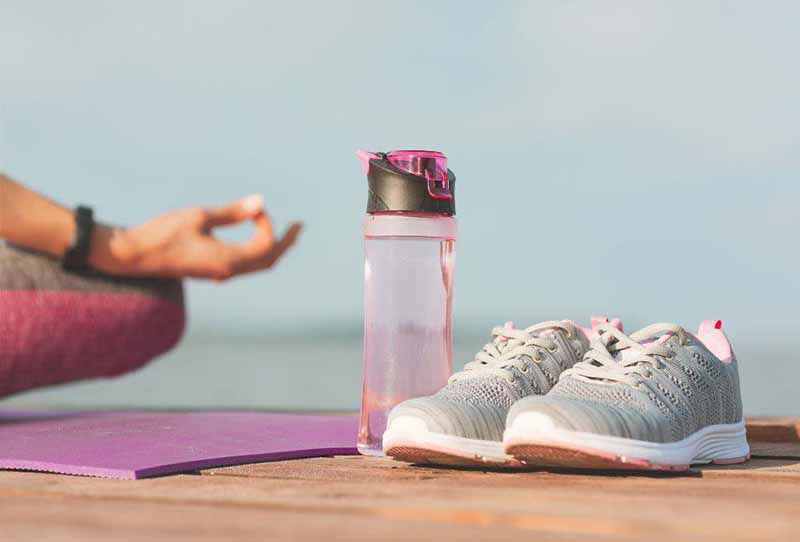We appreciate you raising questions regarding the longevity and safety of bottled water. Knowing this information is important for fresh, and safe consumption over time. So, how long is bottled water safe to drink? What’s the time limit for it?
Bottled water is safe to drink for years if you just store it properly. It should be away from heat, sunlight, and chemicals. Although the water itself doesn’t spoil, there’s a chance for the plastic bottle to degrade and possibly leach chemicals over a long period. For the best quality, consume the water within 2 years of bottling.
This is not the end of the discussion. Let’s go through the full article to know all the details regarding the proper storage practices of bottled water.
Does Bottled Water Expire?
According to the FDA (Food and Drug Administration), bottled water does not have expiration or there’s no limit to the longevity of the water. The FDA also mentions that bottled water’s shelf life doesn’t need to be a concern as long as it’s “properly produced and remains sealed”.
Unlike many other consumable items, water has no organic substances that can break down or decay over time. The chemical composition of water answers why pure water doesn’t come with an expiration date.
The structure is- two hydrogen atoms bonded to one oxygen atom (H2O) and it’s extremely stable. So, unlike food items that decay, water doesn’t go through fermentation or decomposition processes that are responsible for spoilage.
But still, some safety concerns are there. These are not related to the water but related to the water bottle material. Let’s cover this in the next section.
Recommended: Is It Safe to Drink From Metal Water Bottles?
Factors That Affect The Safety of Bottled Water
Here’s what influences the safety of bottled water.
Material of The Bottle
The majority of water bottles are constructed from polyethylene terephthalate (PET) plastic. This material releases more antimony than other typical bottle materials. BPA (bisphenol A) is another toxic chemical that can seep into the water if you can’t store the bottled water in the right way.
Although research suggests these levels are not harmful, it’s better not to let the bottled water too old.
According to the International Bottled Water Association (IBWA), most plastic bottles are slightly porous which can permit gases from the surrounding air (e.g. household vapor solvents or petroleum-based fuels). These can further change the taste and smell of the water.
Storage Conditions
If your bottled water is exposed to high heat or direct sunlight, there’s a high chance that chemicals may leach into the water. It will deteriorate the taste and introduce potential contaminants to make the water less suitable for consumption.
According to studies, when PET bottles are subjected to temperatures above 86 degrees Fahrenheit, they emit a high level of phthalate esters. Also, temperatures above 140 degrees Fahrenheit can lead to the release of harmful amounts of antimony from these bottles.
Recommended: Are Metal Water Bottles Dishwasher Safe?
Biological Contaminants
If you open the bottle and leave it exposed, it will become susceptible to microbial contamination. This exposure allows bacteria and algae to proliferate in the water. Eventually, it can cause an unpleasant taste.
Drinking this water can cause health risks due to the potential presence of harmful microorganisms.
Damaged Water Bottle
A damaged or cracked bottle can cause the water inside to become unsafe for consumption. Environmental contaminants can easily infiltrate the bottle through the cracks or openings.
Excessive air exposure due to a damaged seal can alter the taste and chemistry of the water. No, the air itself isn’t harmful, the oxidation processes after air exposure can let certain microorganisms grow.
Why Are There Stock Rotation Dates Printed on Some Bottles?
As mentioned earlier, the FDA has concluded that bottled water does not have a defined shelf life limit. So, the FDA does not have any rules or regulations to add expiration dates on water bottles.
However, only New Jersey once required expiration dates on the bottle. This requirement is set for a two-year shelf life. However, this law was later repealed because there wasn’t enough scientific evidence to justify it.
Although expiration dates are no longer required, some companies still put date-based codes or ‘sell-by’ dates on their bottles. By implementing stock rotation dates, stores and suppliers can minimize waste.
Stores and distributors can manage their inventory and make sure they sell older stock first so there’s no waste of any stock.

What Happens If You Drink Too Old Bottled Water?
Will bottled water that’s been stored for too long cause any issues? Well, it can cause issues especially if the bottle is not kept under ideal conditions. Here’s what can happen then.
Recommended: Best Slim Stainless Steel Water Bottle
Microbial Infections
If a bottle is not sealed properly or an opened bottle is improperly stored, it can be a harbor for bacteria, viruses, and mold. Drinking contaminated water can lead to gastrointestinal illnesses. You can have diarrhea, vomiting, and stomach cramps as a result of that.
Algal Toxins
In some cases, algae can grow in stored water, especially if the bottle is exposed to light for a long time. some types of algae produce toxins that are harmful to the health. These toxins can cause liver damage, neurological problems, and gastrointestinal issues.
Chemical Exposure
Over time, certain chemicals can leach from the plastic of the bottle into the water.
It’s more likely to happen if your bottle is subjected to high heat or direct exposure to sunlight. BPA exposure is linked to hormonal disruptions and various chronic diseases. Other harmful substances such as antimony can cause respiratory and cardiovascular issues.
How to Tell If The Bottled Water Is Expired or Contaminated?
Here are some tips that will help you tell if your bottled water is safe.
Check The Bottle for Damage
Look at your water bottle closely to detect signs of damage such as cracks, leaks, or dents. A damaged bottle will allow contaminants to enter. It also indicates that the water has been exposed to environmental factors that could degrade its quality.
Altered Color
Water is colorless, so, bottled water should be completely clear. Any cloudiness, floating particles, color change or sediment at the bottom of the bottle says about contamination.
Smell the Water
A simple sniff test can help detect any unusual odors. Water that has an off smell such as a plastic, chemical, musty, or metallic scent might be contaminated. Pure water should have no odor.
Changes in Taste
Fresh water should taste clean and pure. If you notice an abnormal taste such as bitter or metallic flavors, or if the water simply tastes ‘off’, it’s better not to drink the water. However, tasting should be the last step after the other checks have passed, to avoid consuming harmful substances.
How to Stoe Bottled Water?- Best Practices to Follow
If you can ensure proper storage of bottled water, it will be easy for you to maintain its quality and extend its usability. Below are some optimal practices for storing your bottled water effectively.

Temperature Control
Store your bottle in a cool and dry place out of direct sunlight. Maintain the storage temperature between 50°F and 70°F (10°C to 21°C). Extreme temperatures can degrade the water’s taste and quality. It can cause the leaching of chemicals into the water.
A pantry, cupboard, or basement are ideal storage places, as long as they remain consistently cool.
Also, try to maintain a stable temperature as the temperature fluctuations can affect the bottle’s integrity and the water’s quality. Don’t store the bottle in garages or vehicles as there can be significant temperature changes.
Avoid Sunlight
Keep bottled water out of direct sunlight as it can promote algae growth and negatively impact the taste. Continuous exposure to UV rays can even affect the chemical composition of the water.
Use a First-In, First-Out System
Following a a first-in, first-out system will ensure that you are using the freshest water. When following this system, you will use older bottles of water first before newer ones, which is particularly important for large supplies.
Avoid Contaminants
Make sure that bottled water is stored away from household chemicals like cleaning supplies, paints, or gasoline. These substances can emit vapors that can penetrate plastic bottles over time and affect the water’s taste and safety.
FAQs
Is bottled water safe to drink after the expiration date?
According to the FDA, bottled water is safe to drink after the expiration date if it has been stored properly. The date mainly indicates peak quality as determined by the manufacturer, not safety. However, over time, plastic material’s chemicals can leach into the water, especially if you store it in heat or sunlight.
How long can bottled water last in the fridge?
Bottled water can last 5 years or more in the fridge if it has been sealed properly. However, unopened bottled water will last around a couple of weeks in the fridge. After that, the freshness will not be at its peak.
How do you store bottled water long-term?
Keep the bottle in a cool, dry place to store it for the long term. Make sure it’s away from direct sunlight and chemicals. Ideal storage temperatures are between 50°F and 70°F. Regularly check for any bottle damage or contamination, and make sure that the caps are sealed tightly to maintain the water’s purity.
Last Thoughts
We believe that ‘How long is bottled water safe to drink?’ is not a big question for you anymore.
Now you know that bottled water doesn’t come with a fixed expiration date and remains safe to drink for years if you can ensure proper storage. Just make sure that you store it in a cool, dry location, out of direct sunlight and chemicals to prevent any potential leaching of substances from the bottle.
Happy storing!
Recommended Posts:
- Best Materials for Drinking Water Bottle!
- How to Choose Reusable Drinking Water Bottles?
- What are the Types of Water Bottles?
- The Best Green Water Bottles

